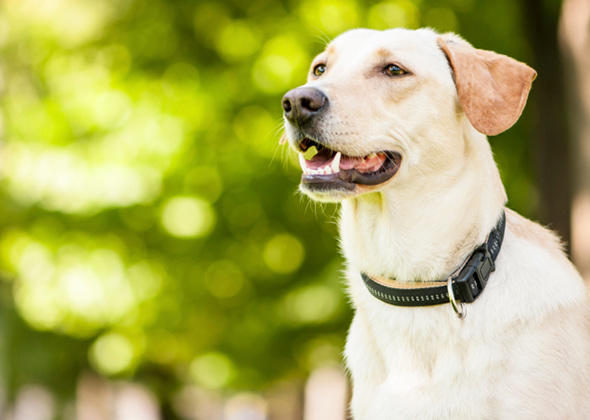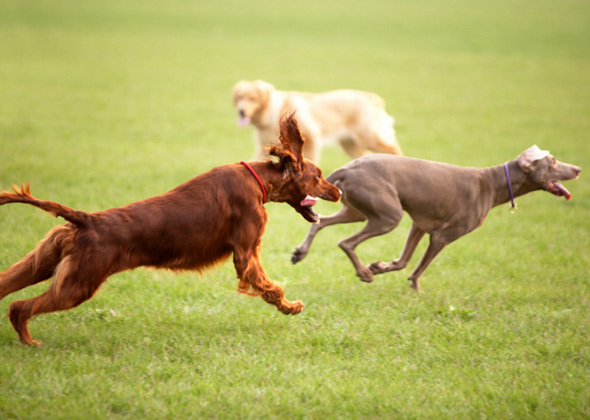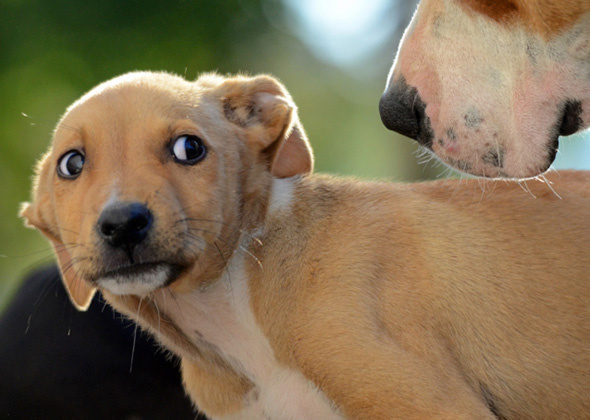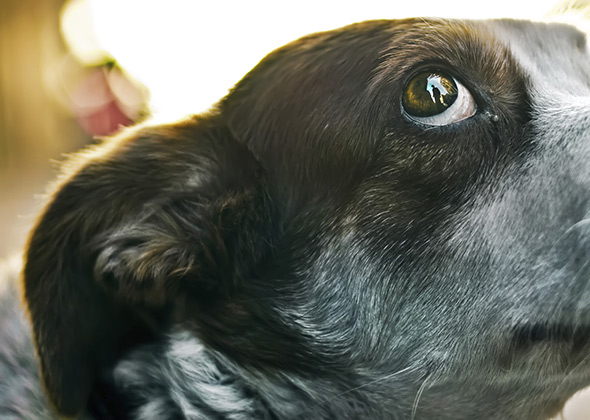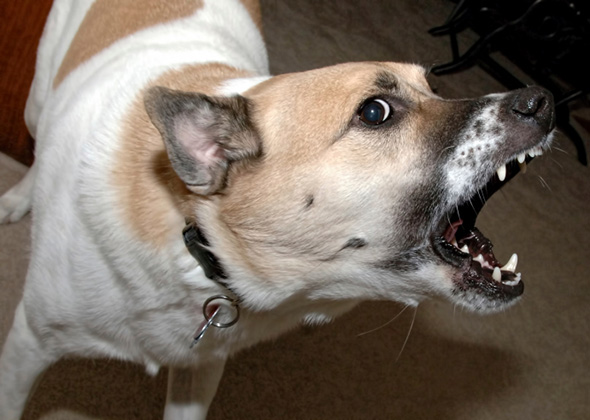Is Your Dog Stressed? Watch for These Signs
Published on February 24, 2016
Skip To
Is your dog feeling anxious? Stressed? Worried? You may think he can’t tell you if he is, but he often will, in nonverbal ways. Your dog communicates his emotional state through his body language and behavior. Decoding these cues is mostly a matter of knowing what to look for.
It is important to notice the signs of stress in their early stages; this gives you an opportunity to remove your dog from a situation before his reaction escalates and becomes potentially aggressive or dangerous. Other anxiety intervention tactics, like training, are also more successful if started as soon as possible, before your dog has a chance to become chronically stressed.
As you attempt to decode your dog’s body language, take the situation into account. In one context, a dog licking his lips may be expressing fear or anxiety; in another context, the same dog may lick his lips in anticipation of a treat. And some dogs lick their lips when they feel nauseous. Consider your dog’s overall behavior, not just one motion or gesture, when you assess his stress level. Be particularly aware of behavior that seems out of character for your dog.
If your dog exhibits signs that could be signaling stress or anxiety, start with a visit to the veterinarian. Your vet can investigate medical issues that may be contributing to changes in your dog’s behavior.
More on Vetstreet:
It is important to notice the signs of stress in their early stages; this gives you an opportunity to remove your dog from a situation before his reaction escalates and becomes potentially aggressive or dangerous. Other anxiety intervention tactics, like training, are also more successful if started as soon as possible, before your dog has a chance to become chronically stressed.
As you attempt to decode your dog’s body language, take the situation into account. In one context, a dog licking his lips may be expressing fear or anxiety; in another context, the same dog may lick his lips in anticipation of a treat. And some dogs lick their lips when they feel nauseous. Consider your dog’s overall behavior, not just one motion or gesture, when you assess his stress level. Be particularly aware of behavior that seems out of character for your dog.
If your dog exhibits signs that could be signaling stress or anxiety, start with a visit to the veterinarian. Your vet can investigate medical issues that may be contributing to changes in your dog’s behavior.
More on Vetstreet:

